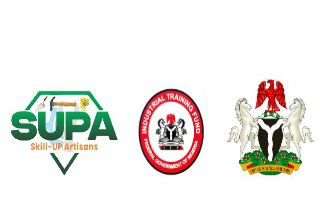

ITF launches ‘SUPA’ initiative to empower five million Nigerian artisans
In a bid to enhance the skills and opportunities of Nigerian artisans, the Industrial Training Fund (ITF) has introduced a groundbreaking initiative called “Skill-up Artisans (SUPA).”
The Director-General of ITF, Dr. Afiz Oluwatoyin Ogun unveiled the SUPA initiative yesterday during the organisation’s 2023 Annual Merit Award ceremony in Jos, Plateau State.
Dr. Ogun emphasised that SUPA will revolutionise the artisan sector by providing training, certification, and licensing to artisans across Nigeria, thereby improving their employability and standard of living.
This transformative program aims to upskill, license, and empower up to 5 million artisans within a year, offering them better prospects both locally and internationally.
The implementation of SUPA involves the comprehensive collation of data on Nigerian artisans, identifying areas where training is needed, and facilitating certification processes.
However, the initiative has already registered thousands of artisans, with ongoing efforts to reach out to more individuals interested in enhancing their skills.
One notable aspect of SUPA is the establishment of a dedicated call center, operational round-the-clock, to address inquiries from the public and provide essential information about the program.
Dr. Ogun emphasised that SUPA underscores the Nigerian government’s commitment to promoting economic development and uplifting the standard of living for citizens nationwide.
“It is intended to drive national development, ensure the availability of skilled artisanal workers for domestic industries, and create a sustainable pipeline for labour exports. It will equally boost the pool of local artisans with proficiency in diverse skills, among other benefits,” he mentioned.
The Director-General called on the state governments, the organised private sector, non-governmental organisations, faith-based organisations, and well meaning Nigerians to collaborate with the ITF in an effort to revitalise the Nigerian economy, especially in the area of SUPA.
On the implementation of skills intervention programs, Dogun pointed out that ITF has so far trained over 42,000 Nigerians who were empowered with start-up packs under the National Industrial Skills Development Programme (NISDP), Women Skills Empowerment Programme (WOSEP), Skills Training and Empowerment for the Physically Challenged (STEPP-C), Construction Skills Empowerment Program (CONSEP), N-BUILD, Project T-Max, Modular Skills Development, and Technical Skills Development Program (TSDP) in collaboration with the Nigerian Employers’ Consultative Association (NECA).
He added that in the area of direct training and capacity development for MSMEs, the Fund implemented 565 scheduled and unscheduled training programs for 11,992 organisations from 908 organisations.
“In addition, we carried out performance and productivity improvement surveys for 48 companies and developed 35 training programs, of which 28 were implemented. Similarly, in appreciation of the importance of MSMEs to Nigeria’s economic growth, the Fund conducted monitoring and evaluation of MSMEs clinics for 241 participants and provided business support services and business needs assessments for 159 and 254 MSME operators, respectively.”




